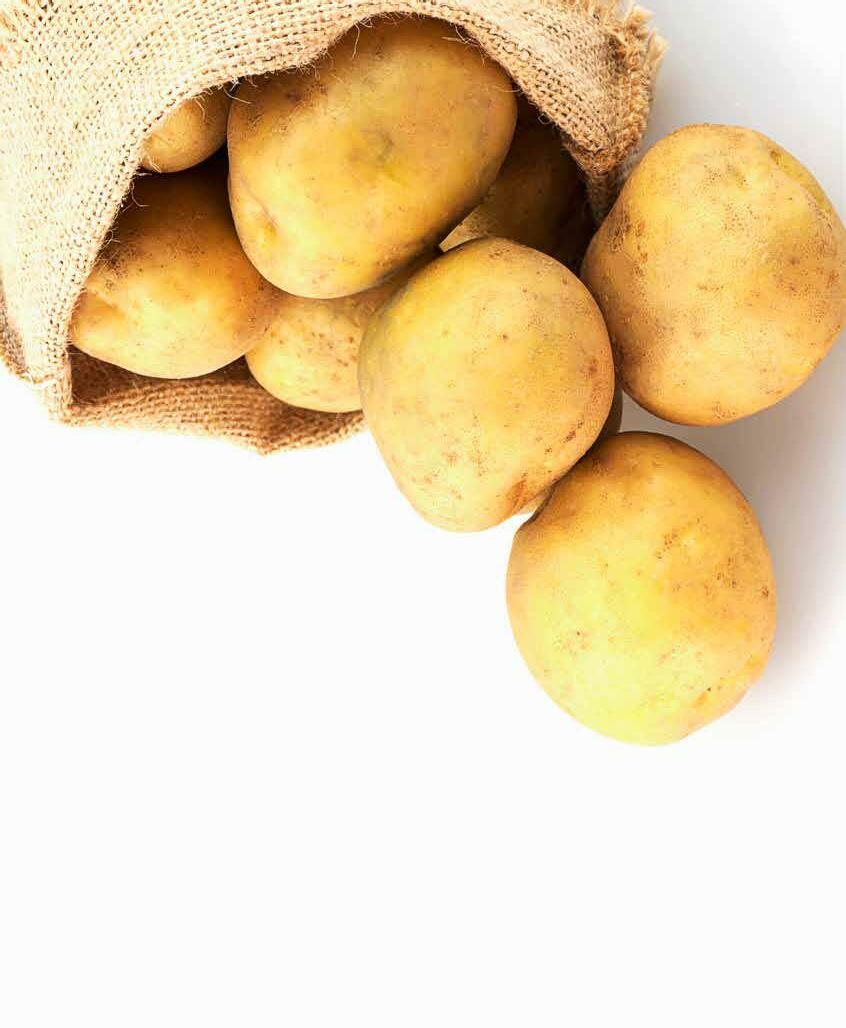
3 minute read
local initiative
THE POWER OF A POTATO
WE TAKE A LOOK AT THE PASS THE POTATO INITIATIVE.
Advertisement
By: Chireez Fredericks
In recent years inequality in South Africa has increased and the COVID-19 pandemic has heightened a dire situation.
The hard lockdown in March 2020 has propelled the unemployment rate as it stands at an alarming 35.3%, according to Statistics SA’s latest data. It is probable that the real rate is considerably higher, leaving at least a third of South Africans with a heavy burden to meet even their very basic needs.
Since 1 March 2022, the National Minimum Wage (NMW) stands at R23.19 per hour, which means that even those lucky enough to hold on to their income during the pandemic, do not necessarily fare well when it comes to feeding themselves or their families.
As millions of South African households desperately struggle to survive, not knowing where their next meal may come from, Potatoes South Africa has stepped up to the plate with the #PassthePotato initiative which was first launched in December 2021. This initiative aims to encourage South Africans to donate potatoes to those in need, and to challenge friends and family members on social media to do the same.
In most of the world, the main currency of food aid has been staples like grains, wheat and rice. Now, the humble potato should be playing a much larger role to ensure a steady supply of food in the developing world, according to a number of scientists, nutritionists and aid specialists. Currently, potatoes are the fourth most consumed crop in the world, behind rice. Not only are potatoes a good source of protein, starch, vitamins and nutrients, but as a crop, they require less energy and water to grow than wheat, taking just three months from planting to harvest.
Potatoes South Africa CEO Willie Jacobs has been quoted saying “During the past two years, the sector and its members took praiseworthy responsibility for local communities left destitute and who otherwise would have found it extremely difficult to survive,” he goes on to say that “notably, potatoes are host to several important vitamins and minerals, including potassium, zinc and calcium, which is crucial for households lacking diverse diets. A single 150g skin-on potato even provides nearly half an adult’s recommended daily amount of vitamin C. But perhaps most significantly, potatoes offer an important source of complex carbohydrates for increasing feelings of satiety and providing sustained energy – a vital benefit for households facing issues of hunger.” Jacobs noted that in addition to their versatility, potatoes offer particularly significant benefits in the fight against food insecurity and malnutrition. There are four dimensions when it comes to food security: food stability, food access, food use and quality and food availability. Due to the potato’s highly diverse distribution pattern and its current cultivation and demand, particularly in developing countries like South Africa with its high levels of poverty, hunger and malnutrition, the potato (among several other food sources) is one that can help match all these constraints worldwide.

Potatoes South Africa has also rallied support from a variety of other businesses including Grow Fresh Produce Agents, Al3Boerdery, Tammy Taylor Dainfern Square, PR Worx, and Instant Pot South Africa, who have all donated towards buying potatoes to help curb hunger.
Although #passthepotato was a festive season campaign, Potatoes South Africa encourages people to continue donating the staple food to those in need. And for anyone seeking hunger-busting recipes head on over to the Potatoes SA’s website potatoes.co.za for a wide rage of budget-friendly potato dishes.









